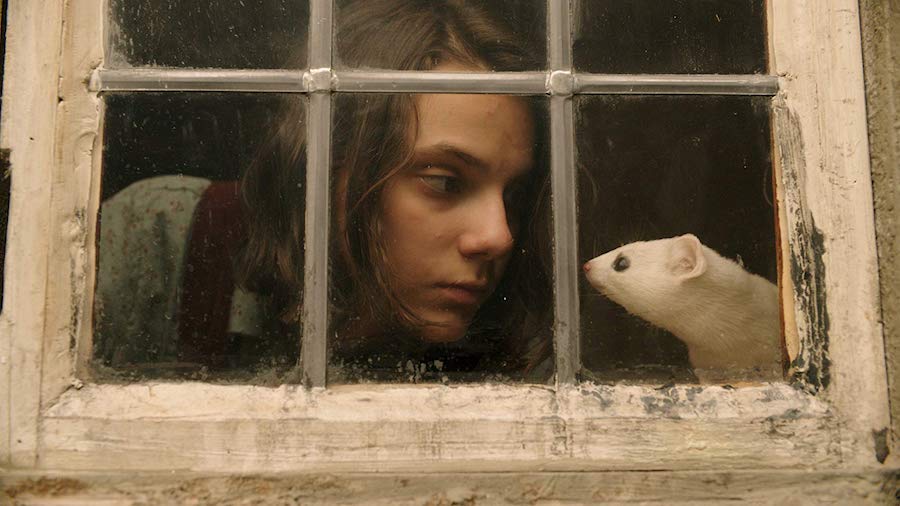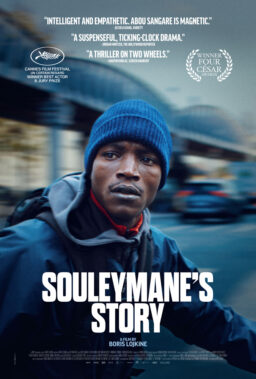Philip Pullman’s “His Dark Materials” trilogy is a masterpiece of high fantasy, a work of fiction that, like the very best examples of the genre, manages to combine enthralling, world-enveloping storytelling and unforgettable characters with themes and ideas so rich and complex that readers will be chewing over them until there are no readers left. And unlike many other great stories, however, it isn’t one the reader can easily float along, like a canoe atop a river, ignoring the depths beneath. Religion, free will, destiny, knowledge, sexual awakening, gender, the existence of the soul, the nature of trust and of intimacy, the corruptibility of institutions, the fear of knowledge, the devastating power of shame, the certainty of loss in life—these aren’t the things you’ll find at the bottom of the river. They are the water itself.
If you’ll allow that metaphor to extend just a little bit farther, to Jack Thorne’s glossy new adaptation of the trilogy for HBO and the BBC, then we’re not looking so much at a river as a creek. That’s not to say there’s nothing to recommend this version of “His Dark Materials”—it’s brilliantly designed, expertly cast, and often technically splendid, with several sequences either dazzlingly or horrifyingly effective. And the story is, essentially, still the story—that of a girl on a mission to save a friend, all the while unknowingly standing at the center of a storm that encompasses the fate of all humanity. But in the four episodes provided to critics for review, the complexity has been diluted, the sharp edges sanded down. Thanks to those brilliant flashes, “His Dark Materials” remains a world worth exploring, but whether you’re comparing it to the source material or coming to it fresh, this series is—apologies for bringing in another liquid at this stage—weak tea.

That’s a term that should never be applied to anything involving Lyra Belacqua (Dafne Keen). Lyra is a scraped-knees kind of kid, running wild across the rooftops of Oxford, leaping from one centuries-old temple of knowledge to another, dodging between the statues of dæmons as zeppelins stand out like gleaming, industrial clouds against the sky. (This, clearly, is not our Oxford, no matter the year, but it is just as clearly not 2019.) Often with her is Roger (Lewin Lloyd), another scrappy kid with no parents who has only ever known the halls (and rooftops) of Jordan College. But Lyra is never alone as she leaps and tumbles through her city, because she has Pantalaimon (Kit Connor).
Lyra, like everyone in this world, has a dæmon, an external element or extension of the self which takes the form of an animal. Of course, it’s more complicated than that; “His Dark Materials” explains the concept in an early title card, then continues explaining it for the next two episodes. It’s an incredibly important piece of world-building, but it’s one among many; in the series’ early scenes, we’re introduced to a world-changing flood, the concept of scholastic sanctuary, the Magisterium, the concept of “dust,” loads of history, Gyptians, Gobblers, and, you know, the basis of the plot. It’s a lot to take in, and despite the many pieces of convenient exposition and explanation, it’s still likely to remain a bit of a mystery for those who haven’t read the books. Those who have will have other frustrations—namely, that the plot somehow races along and moves like molasses at once, covering lots of ground while rarely stopping to invest in the whys or the emotional consequences.
In the show’s defense, it’s a lot to cover—as evidenced by this review, which has yet to introduce several of the show’s main characters, nor its primary thrust. It’s odd to be hesitant to reveal details of the premise of a trilogy which reached its final chapter in October of 2000, but we’ll keep things shrouded in mystery. Lyra’s story begins when a dashing, knit-wearing, and very dangerous man, Lord Asriel (James McAvoy), drops a baby into the bewildered arms of the Master of Jordan College (Clarke Peters). Asriel, who Lyra calls her uncle, returns to the College between research expeditions, until one fateful trip sees him bringing news the Magesterium would surely consider heretical. When he hops back on his zeppelin, yet again refusing to take Lyra with him, she’s primed to meet the fascinating Mrs. Coulter (Ruth Wilson), an accomplished scholar and explorer in her own right, and one who has no interest in leaving her behind.

Eventually she finds herself crossing paths with the brave and nurturing Gyptians Ma Costa (Anne-Marie Duff), Farder Coram (James Cosmo), John Faa (Lucian Msamati), and Tony Costa (Daniel Frogson); the aeronaut Lee Scoresby (Lin-Manuel Miranda) and his dæmon, a hare named Hester (Cristela Alonzo); a witch, Serafina Pekkala (Ruta Gedmintas); and most memorably, a tormented armored polar bear by the frankly perfect name of Iorek Byrnison (voice actor Joe Tandberg and a fleet of top-notch animators). Msmati and Cosmo give compelling but understated performances, but there are few, if any, off-notes. That includes Miranda. If you’d asked me a week ago if the “Mary Poppins Returns” star was the right choice to step into the boots of Sam Elliott, who was one of the sole high points of the lackluster film adaptation of the trilogy-opening “The Golden Compass,” I’d have said yes and it would have been a lie. I am delighted to have been wrong; he and Alonzo are a delight.
Put more succinctly, it’s an excellent group of both characters and actors, though the show’s determination to make the world-building crystal clear comes at the expense of the characters as well as the plot. That extends even to Lyra; while Keen is excellent (and perfectly cast), she remains somewhat generically scrappy throughout the first episode and much of the second. Things crystallize for her and for the series when she begins to interact primarily with Wilson’s Mrs. Coulter, the character who fares by far the best. Much of that success must be credited to Wilson, who has mastered the knack of playing people who lie expertly to others and badly to themselves, and who can be two things at once, even when those things are at war with each other. While late-arriving, Iorek Byrnison’s scenes prove nearly as engaging, and his interiority, like Coulter’s, cannot be divorced from the workings of the plot. That, if nothing else, bodes well for the future of the series; as the lives of these people grow more intertwined, so will the connection between characters and story.

The hope of better things ahead isn’t all that recommends “His Dark Materials,” however. The costume design (Caroline McCall), production design (Joel Collins), art direction, and other design elements are fascinating, feeding that world-building energy more capably than all that explanation. The dæmon statues are a particularly brilliant touch, as are the more industrial elements (plastic sheeting, for example) that differentiate “His Dark Materials” from other, more generic fantasy worlds. And the show’s directors (Tom Hooper, among others) and cinematographers seem to feel similarly. While there are the requisite sweeping, wow-look-how-cool shots of the places Lyra visits, the camera’s tendency to marvel stops when hers does, instead operating with a girl’s-eye-view. It’s a smart choice, and one that lends the later episodes a greater sense of immediacy than the early chapters, which often feel as though the Chris Columbus “Harry Potter” films fused with “Downton Abbey.”
In short, there’s great reason to be optimistic about what will happen as the series progresses—and progress it will, with a second season already in production. And there’s reason to hope that the richness of Pullman’s writing will emerge in time, that once audiences unfamiliar with the books have gotten to know Lyra Belacqua and fallen headlong into her world, Thorne and company will prove more willing to embrace the layers. If they do, this series could be something marvelous. If they don’t, it’ll probably still be entertaining, but it won’t be extraordinary—and if nothing else, Pullman’s “His Dark Materials” should be about the glorious, painful, extraordinary ordinariness of being alive.
Four episodes watched for review.












